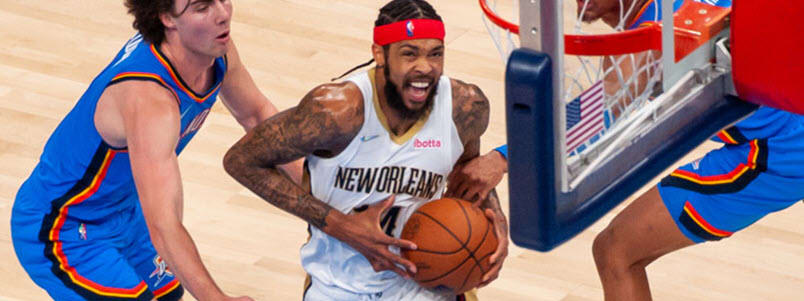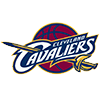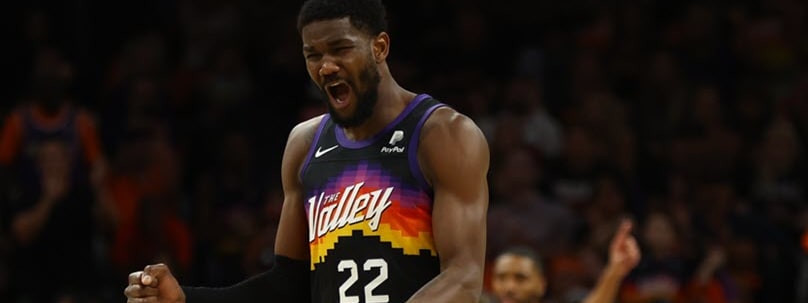Recent RotoWire Articles Featuring Tristan Thompson
See More
After one year with the Celtics, Thompson was dealt via a three-team deal that landed the veteran center in Sacramento. Originally acquired as insurance should the Kings lose Richaun Holmes in free agency, Thompson will now back up Holmes, who subsequently agreed to a new four-year deal with Sacramento. That investment in Holmes means Thompson, who is on the last year of his contract, will certainly be the lower priority. The Kings also brought back veteran center Alex Len, so significant minutes at the five could be hard to come by for the 30-year Thompson. Last year, Boston brought Thompson in to provide a defensive presence against Joel Embiid and other Eastern centers. Unfortunately, Thompson failed in that role and the Celtics were happy to rid themselves of his contract. That doesn't bode well for Thompson in 2021-22, and he might struggle to match last year's 23.8 minutes per game. Long gone are the days when Thompson could bank on starts with a talent-challenged Cavs squad. Look for the 2011 No. 4 overall pick to put up frequent double-singles with low blocks and poor free-throw shooting.
Thompson was a double-double machine with Cleveland, but expect his minutes to dip now that he's a member of a more competitive Celtics roster. The nine-year veteran will compete with 2019-20 starter Daniel Theis for the lead center position in Boston, with Theis probably having the upper hand at the start of the season. But with Enes Kanter returning to Portland, there should be plenty of minutes for Thompson, unless an unlikely breakout from Robert Williams should occur. Thompson's rebounding skills are unquestioned. He's finished in the Top 20 for rebounds per game six times in nine season and ranked ninth in the NBA last year. It will be interesting to see if head coach Brad Stevens encourages Thompson to take more than the 23 three-point attempts that Thompson heaved last season, of which he drained nine. Last year, Kanter played 16.9 minutes per game. Expect a tad more run for Thompson. Plus, Theis experienced injury issues in 2017-18 and 2018-19. Should Theis have more knee issues on 2020-21, Thompson is poised to expand his role.
In terms of pure production, Thompson is coming off his best season since 2013-14, and he averaged 10.9 points and 10.2 rebounds across 27.9 minutes per game. However, he only appeared in 43 games for the Cavaliers. The 28-year-old's biggest concern heading into the 2019-20 season is his durability, as he has now played in just 96 regular-season games over the last two seasons. Last year, Thompson was plagued with a foot injury, and the season before it was both his calf and ankle. The good news for Thompson is that when he was active last year, he was a starter, and the Cavaliers' frontcourt personnel remains relatively unchanged entering this season. So, if Thompson is healthy, he will likely be heavily featured in the center rotation along with Larry Nance and Ante Zizic. Thompson's future with Cleveland, however, is another story, as he is entering the final year of the lucrative five-year deal he signed with the team back in 2015. As a large expiring deal on a team that is focused on the development of younger talent, Thompson could potentially end up being traded at some point this season.
Thompson's 2017-18 campaign was arguably the worst of his career. To begin with, injuries seemed to pile up for the veteran, as a left calf strain and a right ankle sprain limited him to just 53 total games. Thompson had previously missed four or less games in each of the prior five seasons, so that appeared to be more of an aberration than anything. Still, the Cavaliers pivoted to smaller, more athletic players at center for much of the year anyway, which resulted in a significant dip in Thompson's playing time. After averaging 29.9 minutes in 2016-17, his per game number fell to just 20.2, and he started just 22 of the 53 games he took part in. Thompson's lack of court time resulted in a career-low 5.8 points, as well as just 6.6 rebounds and a meager 0.3 blocks. He shot 56.2 percent from the field, but shot just 54.4 percent from the free-throw line, which was yet another negative to his value. Overall, Thompson was nothing more than a rebound specialist in the deepest of leagues. He does have a chance to have somewhat of a bounce-back showing heading into 2018-19. The Cavaliers were unable to retain superstar LeBron James, who instead signed with the Lakers. With such a high usage player leaving, Thompson is sure to see a few more minutes per game and his numbers should trend upwards overall, even if he continues to come off the bench for the bulk of the time. That said, Kevin Love was re-upped to a four-year, $120 million extension and the Cavaliers apparently like what they in athletic big man Larry Nance, both of whom could see time at center and cut into Thompson's workload. As a result, Thompson's expected improvements may only be minor overall.
After playing all 82 games for the Cavaliers in each of the last four years, Thompson once again was just as reliable, seeing action in all but four games during his sixth season in the league. He posted a slight uptick in his point (8.1), rebound (9.2) and assist (1.0) numbers, while becoming a much better rim protector with a career-high 1.1 blocks per game. He also was more efficient from the floor, shooting 60 percent from the field. However, he shot a dreadful 49.8 percent from the free-throw line, which severely hurt his value in rotisserie leagues. The 2017-18 season could come with some minor changes for Thompson. The Cavaliers traded Kyrie Irving to the Celtics and received Isaiah Thomas, Jae Crowder and Ante Zizic in return. Crowder's presence could allow the Cavaliers to go to some smaller lineups with Crowder at power forward and Kevin Love at center, which could sacrifice a few of Thompson's minutes. That said, if Thompson's playing time does ultimately fall, it likely won't be by much and he should see similar numbers across the board for the most part. His value will continue to lie mostly in his rebounds and blocks, while profiling as an average scorer at best.
After a lengthy contract holdout lingered through much of training camp, Thompson eventually re-signed with the Cavaliers on a five-year, $82 million contract and turned in the most efficient season of his career in 2015-16, averaging 7.8 points per game on 58.8 percent shooting. While his impact offensively continued to diminish -- he had a career-low 11.7 percent usage rate -- Thompson embraced his role as a rebounding and defensive specialist. Thompson produced a career-best 23.3 defensive rebound percentage and 18.4 total rebound percentage while leading the NBA in offensive rating (130) among qualified players. He was moved in and out of the starting lineup throughout the regular season as both David Blatt and Tyronn Lue tinkered with the frontcourt alignment, but he ultimately settled in as the starting center prior to the postseason. Thompson started all 21 games en route to the title, averaging 6.7 points and 9.0 rebounds in addition to serving as the team's do-it-all defender, allowing the Cavs to switch on and off the ball at will. Entering 2016-17, Thompson is entrenched in a starting role as part of a big-man rotation that will also include Kevin Love, Channing Frye and Chris Andersen. With Frye and Love most comfortable working around the perimeter, it will again be Thompson's responsibility to clean the glass and protect the rim.
After two years as a starter in all 82 games for Cleveland, Tristan Thompson was mainly a reserve in 2014-15. He again played in 82 games, but started just 15 and almost all of his numbers decreased. In 27 minutes, Thompson provided 8.5 points, 8.0 rebounds, 0.5 assists, 0.4 steals, and 0.7 blocks. He did not attempt a three-pointer. The four-year Cavalier did have a career-high 55 percent from the field (which indicates that he was not taking shots out of his range), but his 64 percent from the line failed to impress. He continues to be an excellent offensive rebounder and still hauled in 3.3 of his own team's missed shots despite the decrease in minutes. Thompson can also switch to smaller players on defense, which is a critical skill on a team with Kevin Love and Kyrie Irving, who are generally indifferent defenders. After Love separated his shoulder in the playoffs, Thompson moved into the starting lineup and provided 9.6 points and 10.8 rebounds. With Love and Timofey Mozgov as starters, Thompson will likely return to bench duty in the new season, and his production will be tied to his playing time.
Tristan Thompson has been the steadiest member of the Cavaliers' frontcourt for the last two seasons but has seen his situation change as he enters his fourth season in the league. The 6-9 forward has started every game since 2012 and has provided a stable stat line. In 2013-14, he averaged 11.7 points, 9.2 rebounds, and 0.9 assists per game. Despite being groomed as a defensive player, Thompson only blocked 0.4 shots per game last year. Last offseason, he switched primary shooting hands from his left to his right hand, and as a righty, he hit 48 percent of his field goals and a career-best 69 percent of his free throws. With a new regime in Cleveland, Thompson's role is somewhat uncertain. If Anderson Varejao is healthy, Thompson will likely come off the bench behind Kevin Love. Thompson could also serve as an undersized center next to Love in the starting lineup. The Canadian-born forward can play low-post defense, but at 238 pounds, he can give up muscle to bigger centers in the league. With Love on the court, there will not be as many defensive rebounding opportunities for Thompson. Since Love likes to play on the perimeter, Thompson could sneak in for offensive rebounds (3.3 per game in 2013-14) and have some fantasy appeal as a helper in rebounds and field goal percentage.
While starting next to Varejao last season, Thompson looked like he was going be nothing more than a slightly below average player. More doors opened for the 6-9 Canadian after Varejao was lost for the season, and Thompson produced buckets of double-doubles thereafter. He finished the season averaging 11.7 points and a team-high 9.4 rebounds. If Varejao and Bynum manage to stay healthy, Thompson's numbers will likely take a large dip, but he can be drafted and stashed in deeper leagues because the odds of Bynum and Varejao staying healthy aren't great.
Some folks were left scratching their heads when the Cavs took Thompson with the fourth pick in 2011. However, some of the advanced metrics love the big Canadian. As a rookie, he only averaged 8.2 points and 6.5 rebounds per game, but he is still a raw player with potential, and he could see an uptick in his performance this year.
Thompson has the athleticism and skills to make an immediate impact. However, at the tender age of 20, it is unclear what his role will be, especially with Jamison back and healthy. After playing just one year at the University of Texas, where he averaged 13.1 points, 7.8 rebounds and 2.4 blocks, expect Thompson to help the Cavaliers’ tremendously on the boards and with points in the paint. If Jamison’s season is cut short again by injuries, Thompson could see his minutes skyrocket and instantly becomes a top-20 power forward.












